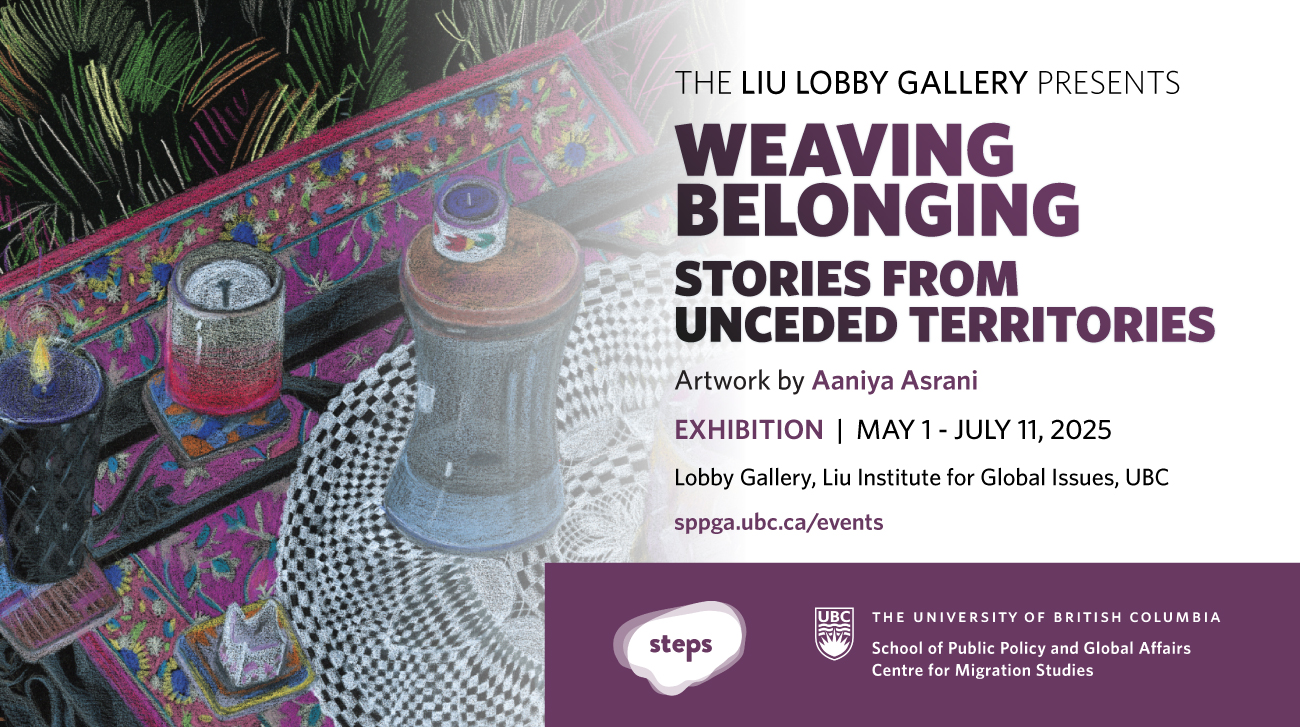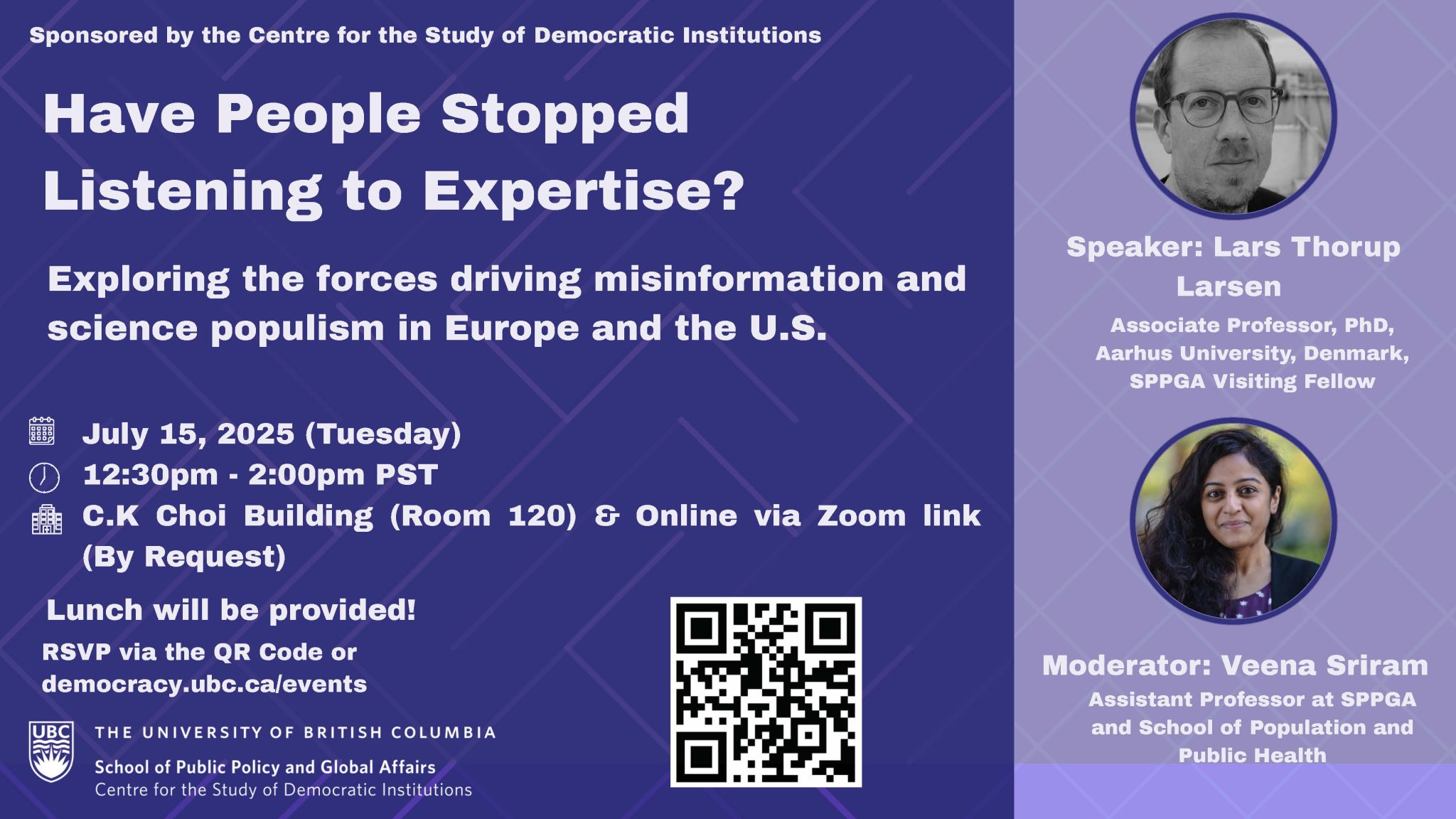A Policy with a Vision for Self-Determined Development for Indigenous Peoples Globally
Luis Felipe Duchicela launched the USAID Policy for Promoting the Rights of Indigenous Peoples in March 2020. The lecture will explain the central tenets of this policy and how this policy represents a pivotal change in international engagement cooperation with Indigenous peoples because it enhanced their ability to protect their rights, determine their own priorities, and advance their self-determined development and self-reliance.
Musqueam Welcome: Elder Larry Grant, Adjunct Professor, First Nations and Endangered Languages Program; Consultant, Musqueam Language and Culture Department
Speaker: Mr. Luis Felipe Duchicela, Senior Advisor for Indigenous Peoples’ Issues, USAID
Moderator: Grace Jaramillo, Sessional Instructor, Master of Public Policy and Global Affairs program, School of Public Policy and Global Affairs, UBC
Speaker’s Bio:
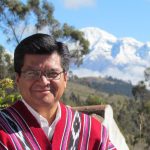

In this capacity, he provides advice to the USAID Administrator on matters related to the rights and needs of Indigenous Peoples internationally and represents the U.S. Government (USG) on such matters in meetings with foreign governments and multilateral institutions. He also provides oversight and coordination of USG resources, programs, projects and activities to protect the rights and address the needs of Indigenous Peoples and develops and coordinates assistance strategies for Indigenous Peoples with specific goals, guidelines, benchmarks and impact assessments (including support for local Indigenous Peoples organizations).
Prior to USAID, Luis Felipe served as Global Advisor on Indigenous Peoples at the World Bank from January 2013 until his retirement from the Bank in June 2018. His primary mandate at the World Bank was to create a constructive dialogue with Indigenous Peoples worldwide to achieve deeper understanding and to work together towards sustainable development and assist World Bank regional and country offices to better assess the situation of Indigenous Peoples and prepare plans and programs that take into account their ancestral knowledge, cultural identity, legal rights and their linkages to their natural habitats and resources. From 2013 to 2016, Luis Felipe led the global dialogue between the Bank and the Indigenous Peoples of the world as part of the reform process of the Bank’s Environmental and Social policies, which culminated in August 2016 with the approval by the Board of the new Environmental and Social Framework (ESF) of the Bank and the new Standard for Indigenous Peoples (ESS7).
Prior to joining the World Bank, Luis Felipe was the Executive Director of the Amazon Conservation Association (ACA), a Washington, DC-based NGO that focuses on biodiversity scientific research and conservation in the Amazon regions of Peru and Bolivia. Prior to that he served as the Regional Director for USAID-funded programs with the Rainforest Alliance, a non-governmental organization working to conserve biodiversity and ensure sustainable livelihoods – first in Central America and Mexico, and thereafter in Ecuador and the Andean Amazon Region (Colombia, Ecuador, Peru and Bolivia), where he was in charge of promoting Best Management Practices and Sustainable Livelihoods in Agriculture (coffee, cocoa, bananas and other crops), Forestry (Timber, Brazil nut and other NTFP’s) and Tourism in fragile ecosystems of these countries. Luis Felipe also worked on several other USAID-funded projects where he promoted sustainable agricultural production and exports from the Chapare region of Bolivia and then directed cocoa production in the Ecuadorean Amazon.
He was also the first National Secretary (Minister) of Indigenous Peoples and Ethnic Minority Affairs of the Republic of Ecuador in 1994, under the Presidency of Sixto Duran-Ballén, and managed to create the first multimillion dollar program ($50 mm) exclusively for Indigenous Peoples and Afro-Ecuadorean development with World Bank, IFAD and Government funding (the PRODEPINE Project).
Earlier in his career, he worked with Chiquita Brands International in various countries in Latin America in administration and finance, in operational and management positions and also in environmental and corporate responsibility projects.
Luis Felipe holds a Master’s degree in Public and Private Management from Yale University with emphasis in Finance, Corporate Strategies and Quantitative Analysis, and his Bachelor’s degree is in Architecture and Regional Planning from the Universidad Central del Ecuador in Quito.
Luis Felipe’s country of origin is Ecuador, of Quechua descent, from the Puruhá People of the Chimborazo province in the central Andes of Ecuador, which was part of the Inca Empire in pre-Hispanic times.
Moderator’s Bio:
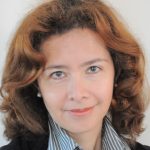

Grace Jaramillo is a sessional instructor with the UBC Master of Public Policy and Global Affairs program. She earned her PhD from Queen’s University in 2016. Immediately after, she won a SSHRC Postdoctoral Fellowship to study institutional spillovers of Free Trade Agreements in the Americas, spending the first year at the Balsillie School of International Affairs at University of Waterloo, and then moving this research project to UBC to complete her research studying the CPTPP negotiations.
Before moving to Canada, she was an accomplished International Relations expert and head of the Department of International Relations at FLACSO-Ecuador. She was nominated twice to the annual list of “20 most prominent young thinkers of Latin America” by the Development Bank of Latin America, CAF and Brookings Institution.
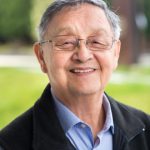

Musqueam Elder’s Bio: Larry Grant, Musqueam Elder, was born and raised in Musqueam traditional territory by a traditional hən̓q̓əmin̓əm̓ speaking Musqueam family. After 4 decades as a tradesman, Larry enrolled in the First Nations Languages Program, which awoke his memory of the embedded value that the hən̓q̓əmin̓əm̓ language has to self-identity, kinship, culture, territory, and history prior to European contact. He is presently assisting in revitalizing hən̓q̓əmin̓əm̓ in the Musqueam Language and Culture Department, and co-teaching the introductory hən̓q̓əmin̓əm̓ course through UBC.
Larry is the Elder-in-Residence at UBC’s First Nations House of Learning. He is a Faculty Fellow at St. John’s College, and the inaugural Honorary Life Fellow for Green College. In 2010, he received the Alumni Award of Distinction from Vancouver Community College, and in 2014, he became an Honorary Graduate from the Indigenous Teacher Education Program (NITEP) at UBC.
Hosted by: The School of Public Policy and Global Affairs, UBC
